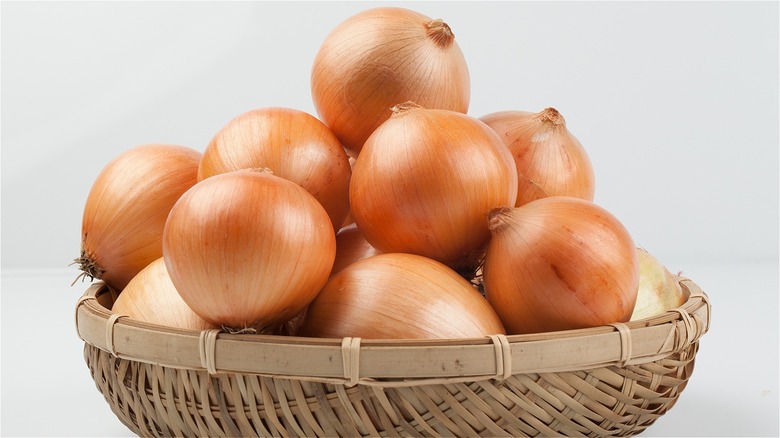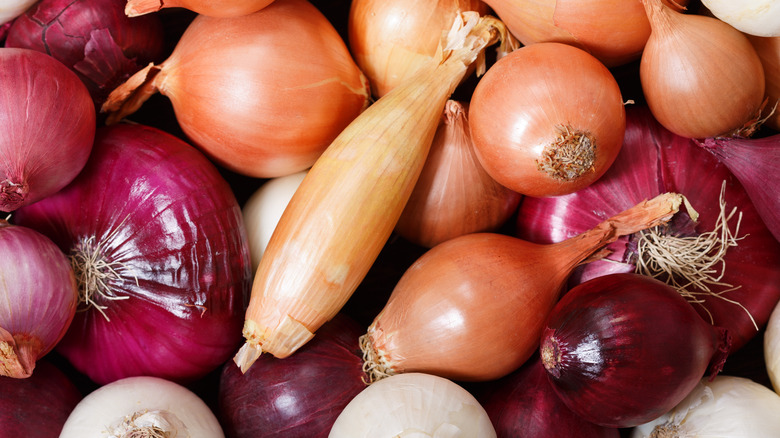What Is A 'Storage' Onion?
Let's start by asking the question: What even is an onion? They are delicious. They are beautiful. They help us get in touch with our emotions (but there are ways to avoid the tears), but what are they really? Turns out, onions are a part of the genus Allium and belong to the lily family (via Inland Empire Utilities Agency). This group of vegetables is sometimes referred to as "stinking lilies" and includes aromatics such as chives, garlic, leeks, and shallots.
The reason onions make you cry is because of a chemical process involving sulfur. When the skin of an onion is broken, various enzymes meet sulfenic acid, notes Healthline. This creates an irritating gas called propanethial S-oxide, which the onion spews out as a defense mechanism against hungry animals, and unfortunately, hungry humans.
Onions have many helpful chemicals too. According to WebMD, onions contain quercetin, which has been shown to help prevent cancer. The naturally occurring sulfur in onions helps lower cholesterol and could also have a positive effect on reducing the risk of blood clots. Which makes "storage onions" a must for your pantry.
There are two types of onions
There are two types of onions, according to Good Housekeeping: fresh onions and storage onions. Spring onions and green onions are some of the types that fall into the fresh category, while yellow, Spanish, white, and red onions are a few considered storage onions.
Storage onions were bred so that they could be stored through the winter, according to West Coast Seeds. These onions are generally round bulbs, have a few layers of papery skin, and when kept in a cool, dry, dark, place, will last at least a month (via Good Housekeeping). Storage onions are characterized by having a sharper flavor than fresh onions (via Yahoo! News). In general, yellow, white, and Spanish onions are the hottest and sharpest. Shallots, also a storage onion, are typically the sweetest and most mild. Red, pearl, and Italian onions fall somewhere in the middle. However, the older an onion is, the stronger those irritating compounds are, leading to a sharper taste (per The University of Vermont).
If harshness is a concern, Palak Patel of the Institute of Culinary Education has some ideas (via Martha Stewart). You can stick a whole onion in the freezer for a few minutes before cutting. Soaking cut raw onion in ice water, pickling, and of course, sautéing onions low and slow until caramelized are all ways to keep the harshness of storage onions from overpowering a dish.

